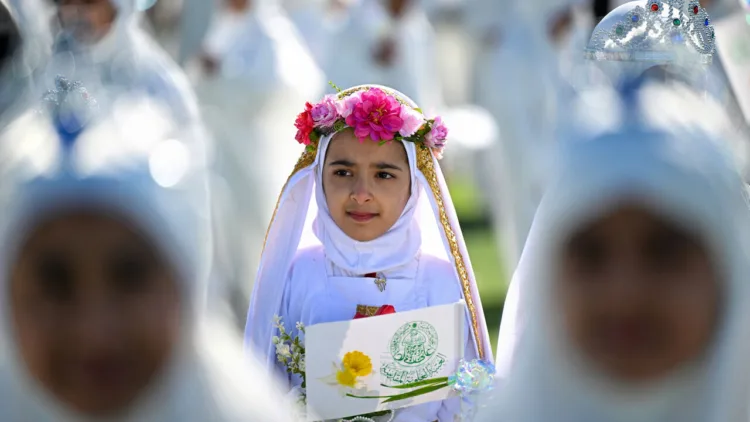On January 21, 2025, the Iraqi Parliament passed three contentious laws, signalling a potential shift towards Islamic jurisprudence in family matters. The most debated among these were amendments to Iraq’s Personal Status Law, which critics argue could legalise child marriage by empowering Islamic clerics to adjudicate family issues according to their interpretation of Islamic law. This legislative move in Iraq, alongside the ongoing discourse on Sharia law in India, underscores a broader narrative about the intersection of religion, law, and human rights in modern societies.
The Iraqi Parliament’s decision to amend the Personal Status Law has drawn significant criticism for potentially undermining women’s rights. The changes allow for marriages of girls as young as nine under the Jaafari school of Islamic law, a stark contrast to the existing legal minimum marriage age of 18. This amendment, supported predominantly by conservative Shiite lawmakers, was justified as a means to resist Western cultural influence and align personal laws more closely with Islamic principles. However, human rights advocates, including Intisar al-Mayali from the Iraqi Women’s League, have warned of the dire consequences for women and girls, predicting a rollback in protections related to divorce, custody, and inheritance.
The session was fraught with procedural chaos, with allegations of a broken quorum and simultaneous voting on three divergent bills, leading to accusations of legal irregularities. Independent MP Raed al-Maliki highlighted the procedural mishandling, suggesting potential legal challenges. Despite the controversy, Parliament Speaker Mahmoud al-Mashhadani praised the move as a step towards justice and societal organisation.
The debate in Iraq parallels concerns in India, where there is an undercurrent desire among some to implement Sharia law. Various Islamic organisations, including the All India Muslim Personal Law Board (AIMPLB), have resisted the Uniform Civil Code (UCC) and other secular legal reforms, advocating instead for Sharia-based personal laws. This resistance is not only rooted in religious ideology but also manifests in public protests, threats, and legal battles, often under the guise of preserving Muslim identity against perceived cultural assimilation.
AIMPLB and Opposition to UCC: The AIMPLB has actively established Sharia courts to adjudicate personal matters like marriage and divorce, arguing they alleviate the burden on secular courts. However, this move is seen by critics as an attempt to institutionalise Sharia law within India, challenging the secular and constitutional framework. The board’s opposition to reforms like the Muslim Women (Protection of Rights on Marriage) Act of 2019 highlights a preference for religious over civil law.
Public and Legal Manifestations: The propagation of slogans like “gustakh e rasool ki ek hi saza sar tan se juda” reflects an extremist interpretation of Sharia where blasphemy can justify violent actions. This has led to mob violence and legal persecution, particularly in cases perceived as insults to Islam, illustrating the clash between Sharia enforcement and democratic legal principles.
Impact on Interfaith Marriages: Judicial interpretations in India, like the Madhya Pradesh High Court’s ruling on Muslim-Hindu marriages, show how Sharia influences can complicate interfaith relations, often requiring conversion for legal recognition under Islamic law.
The enforcement or influence of Sharia law in Iraq raises questions about individual rights, particularly for women and minorities. In Iraq, the new laws could lead to an increase in child marriages, reducing educational and economic opportunities for girls.



















Comments